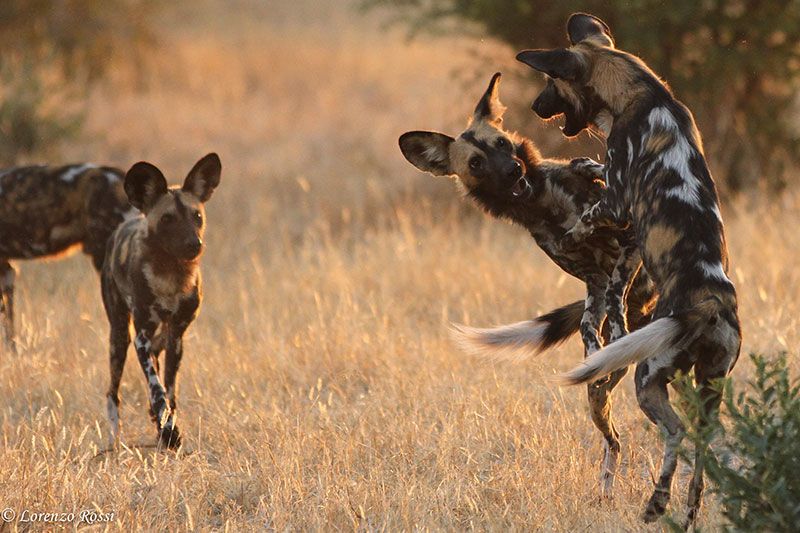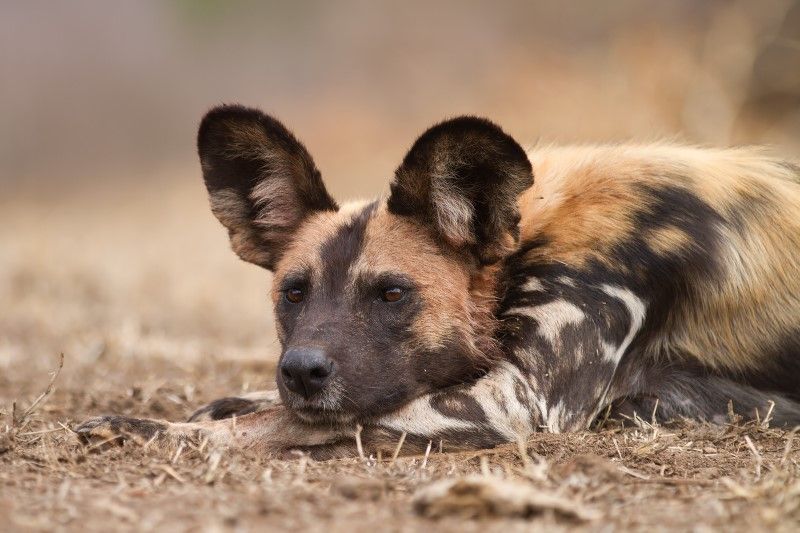Protecting the pack: African wild dog conservation in Kenya

Fewer than 7,000 African wild dogs remain globally
After a 30-year absence from the region, mainly due to conflict with pastoralists and disease, African wild dogs recolonised Kenya’s Ewaso ecosystem in 2003. The re-emergence of these smart and social animals was thanks to focused conservation efforts and education, and proved to many who doubted it that it’s possible for African wild dogs to coexist alongside people and their livestock.
For the next 14 years, this population expanded and became a globally important African wild dog population – the largest occurring entirely outside protected areas – and was designated a Key Landscape for Conservation by the EU.
However, in 2017, an epidemic of Canine Distemper Virus decimated the population, leaving behind just two individuals. Surviving wild dogs and newcomers have re-formed small packs since the epidemic, but threats of disease still loom, and as the climate becomes increasingly hot and dry, pastoralists are forced into African wild dog territory to search for water, greatly increasing the chances of livestock depredation and subsequent retaliatory killings.
Assessing the threats and making changes for the future
Two major threats to African wild dogs are infectious disease outbreaks and retaliatory killing by pastoralists following attacks on their livestock. Our partner, Dedan Ngatia, is studying both of these threats and examining the role that domestic dogs play in both sources of mortality. We’re funding Dedan to investigate how domestic dogs, livestock production and climate change influence the population viability of African wild dogs.
Using GPS collars on African wild dogs, domestic dogs and cows, Dedan will analyse the overlap of these animals on various ranches to assess if livestock depredation is lower when herders are accompanied by domestic dogs.
He’ll use this same data to estimate disease transmission in packs who have come into contact with domestic dogs. He’ll use weather data to confirm his hypothesis that hot, dry weather forces herders into closer contact with African wild dogs. With global temperatures rising, bringing hotter, drier weather to the region, it’s become increasingly important to find sustainable solutions for the entire ecosystem.
Dedan wants to show that domestic dogs can protect cattle, as has been proven in other conservation efforts. With more herders protecting their livestock with domestic dogs, there should be less killing of African wild dogs as a result. Dedan will also work closely with the Laikipia Rabies Vaccination Campaign to expand vaccination of domestic dogs, creating safer environments both for people and African wild dogs.
The expected outcomes of this project are; 1) a better understanding of the impact of disease outbreaks and retaliatory killing of African wild dogs, routed through domestic dogs, 2) African wild dog recovery throughout Laikipia and Samburu counties, 3) knowledge sharing of conflicts between livestock, domestic dogs and wild dogs, 4) amplification of rabies vaccination campaign to eradicate the disease, and 5) direct benefits to the local community, including improved public health and domestic dog health, employment
opportunities through assistantships, reduced attacks on livestock, and increased ecotourism through the
presence of African wild dog.
We want to give African wild dogs a brighter future; with your help we can make a difference.

